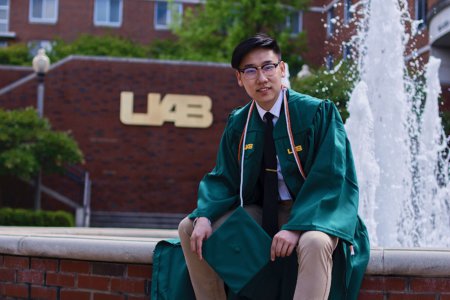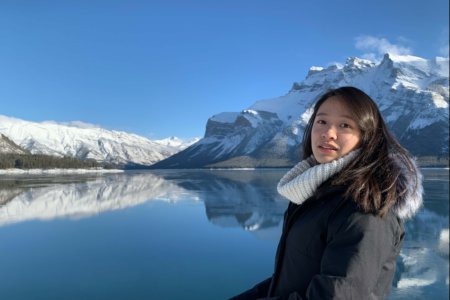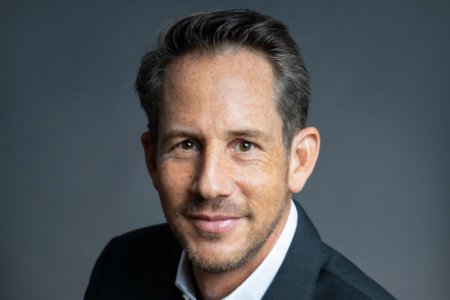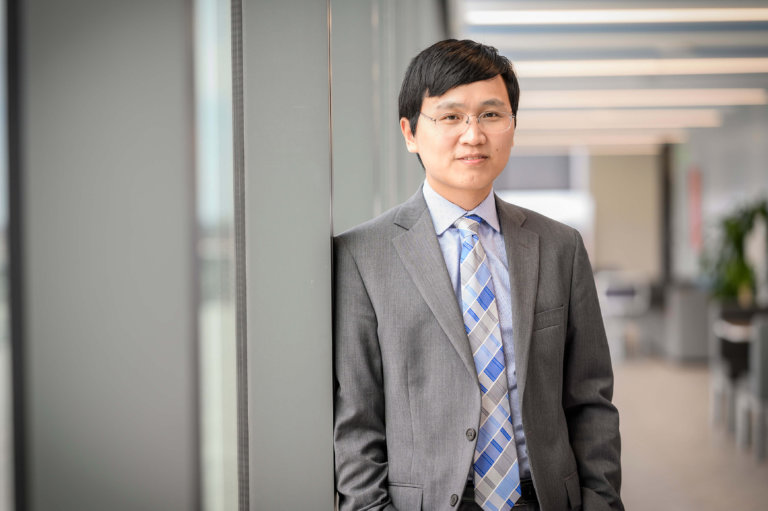
Each and every step of how a kidney gets from donor to receiver is a matter of life and death. One misstep, and a patient’s years-long wait for a transplant, can vanish into smoke. This is what Tinglong Dai used to focus on before the pandemic hit. Dai is a Professor of Operations Management & Business Analytics at the Johns Hopkins Carey Business School. He specialises in Healthcare Operations. Some of his research investigates how AI and analytics shapes the healthcare ecosystem.
It’s the same with vaccines today. Millions, especially vulnerable populations, of lives and livelihoods depend on a supply chain that gets them inoculated as soon and as equitably as possible. Dai’s recent research looks into how to roll out COVID-19 vaccines efficiently and equitably. His expertise has been sought and quoted hundreds of times in the media, including Associated Press, Bloomberg, CNN, Fortune, New York Times, NPR, USA Today, Wall Street Journal, and Washington Post, as well as in national and international TV such as CNBC, PBS NewsHour, and Sky News. In 2021, he was named as one of the World’s Best 40 Under 40 Business School Professors by Poets & Quants.
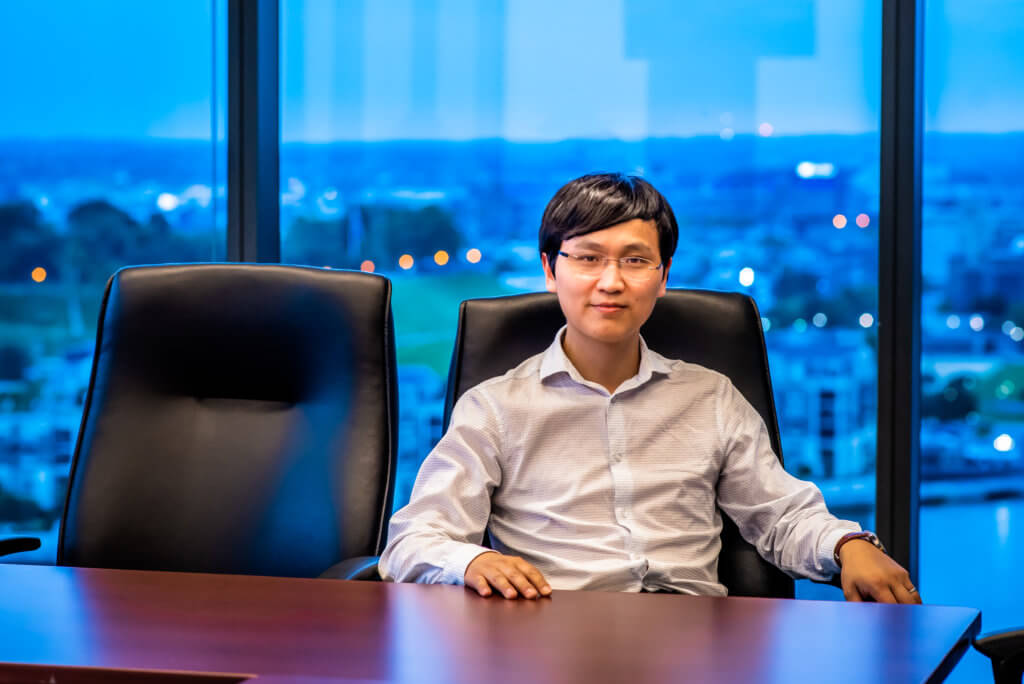
In 2021, he was named as one of the World’s Best 40 Under 40 Business School Professors by Poets & Quants. Source: Tinglong Dai
He is, arguably, one of the nation’s foremost experts on vaccine distribution. We caught up with this award-winning professor to learn more about his educational journey from a small village in China to one of the top universities in the world today:
Where does your love for business analytics and AI stem from?
I have always been fascinated by numbers. Growing up in a small village in China in the 1980s, I didn’t have many entertainment options other than reading books. I was fortunate to have a sizable collection of math and science books from my father and grandfather.
As I grew older, I realised that I didn’t want to become a mathematician per se. Rather, I was more interested in solving real-world problems using math as a tool. I eventually found my way to business analytics and AI.
Why did you choose to pursue your PhD at Carnegie Mellon University?
Carnegie Mellon University is one of the best in the world to study AI. In fact, the founding father of AI — Herbert Simon — was a professor there for more than 50 years. What amazed me was that in addition to being an AI pioneer, Simon was a business school professor and won a Nobel Prize in Economics.
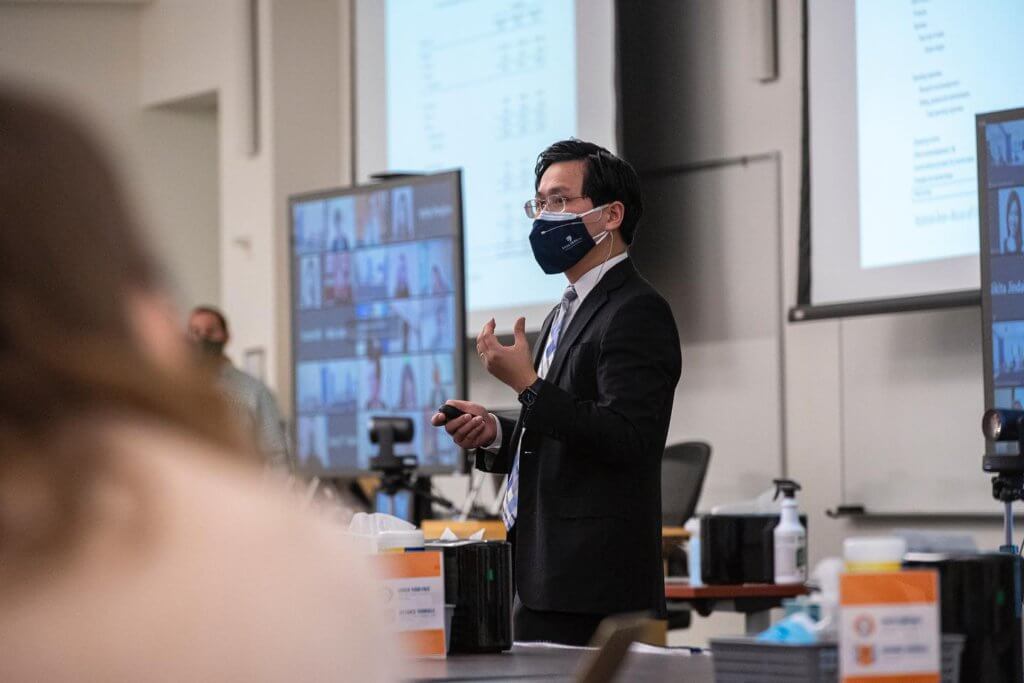
“Much of my PhD research focuses on using business analytics and AI to solve healthcare problems,” he says. Source: Tinglong Dai
He wasn’t the only one. Carnegie Mellon is largely celebrated for its multidisciplinary research. As I did my research, I realised that there was simply no better school than that one for me to study both business and AI for a PhD.
Tell us more about your career trajectory with Johns Hopkins University since graduating.
After having studied at Carnegie Mellon for five years (a PhD Operations Management/Robotics and MS Industrial Administration after an M.Phil, Industrial Engineering & Engineering Management at the Hong Kong University of Science & Technology), I started looking for a faculty position. Much of my PhD research focuses on using business analytics and AI to solve healthcare problems. So, unis with strong medical schools like Johns Hopkins University — popped into my mind and was naturally attractive to me.
In addition, I was looking for a school with a multidisciplinary vibe like Carnegie Mellon’s. Luckily, Johns Hopkins University started a business school the same year I started my PhD and was looking for faculty candidates with a strong interest in healthcare.
The business school was small at the time so it was multidisciplinary by design. I was invited to visit in early 2013 and it was love at first sight. I was hired and am still in love with it. Apparently they love me too as I was recently promoted to a full professor with tenure.

“I have always been fascinated by numbers. Growing up in a small village in China in the 1980s, I didn’t have many entertainment options other than reading books,” Dai says. Source: Tinglong Dai
What interesting things have you found in your research on the healthcare ecosystem and COVID-19?
Making sustainable changes to the healthcare ecosystem requires a deep understanding of the intertwined nature of different entities. For example, a key issue in organ transplantation is that many transplant surgeons refuse to accept organ offers which leads to wasted kidneys.
If we simply focus on changing surgeons’ behaviour, we may be missing the big picture. My research finds an important reason that surgeons refuse to accept a kidney because some donors are from faraway locations without direct flights. This shows a new direct airline route can increase the number of kidneys shared across regions by 7.3%.
In the case of COVID-19, I’ve studied the supply chain of personal protective equipment (PPE). I found that the lack of transparency of the US PPE supply chain is a key reason behind the inadequate crisis response during the pandemic.
Currently, PPE manufacturers are only required to report the locations of their manufacturing facilities to the Food and Drug Administration (FDA). Most hospitals only know the identity of their tier-1 suppliers.
Without any basic supply chain information healthcare executives can’t manage their supply risks and policymakers can’t assess the resilience of the PPE supply chain. Accordingly, my research proposed to improve the transparency of the PPE supply chain through legal and market efforts.
What do you envision with the progress of digitisation?
The progress of digitisation has not led to as much progress as we initially hoped. In the near future, I expect the business community to rethink the role of digitisation and start developing strategies to ensure technological advancements are translated into fulfilling jobs and enjoyable lives.

“Public speaking and storytelling. These two skills are incredibly valuable,” Dai says about what he wished he learnt at uni. Source: Tinglong Dai
How do you use the knowledge and skills gained from your studies in your current job?
I was as much a business scholar as an AI researcher at Carnegie Mellon. Because I was in a joint programme, I was able to take many fascinating courses on subjects. This included: accounting, AI, decision sciences, economics, finance, law, management, marketing, operations research and optimisation. The wide range of courses has allowed me to collaborate with people across disciplines and learn new knowledge and skills rapidly.
Do you get to apply the theories you gained in the practical learning elements in your course to your current job?
Carnegie Mellon is a place where students are on their own. Professors don’t often tell you what to do. When I was a PhD student, I learned to work on a research project independently, from developing a research idea to building mathematical models to writing a paper to getting the research published. The process was painful but turned out to be immensely valuable years later when I became a professor and an independent scholar.
What skills or knowledge do you wish you had learned more during uni?
Public speaking and storytelling. These two skills are incredibly valuable. I was fortunate enough to be able to take an incredible course from Professor Natalie Baker-Shirer at Carnegie Mellon’s Drama School — I wish I had taken more courses there!
Do you have any advice for international students planning to enroll in the same courses as you?
Getting a PhD is a tough journey but ultimately rewarding. If you are interested in becoming the number one expert on a subject matter, go for it!
Where do you see yourself in 10 years?
I’m still in love with Johns Hopkins University so I wouldn’t be surprised if I still live in the Baltimore/DC area. I hope my research will influence how physicians work with AI in their medical practices.









